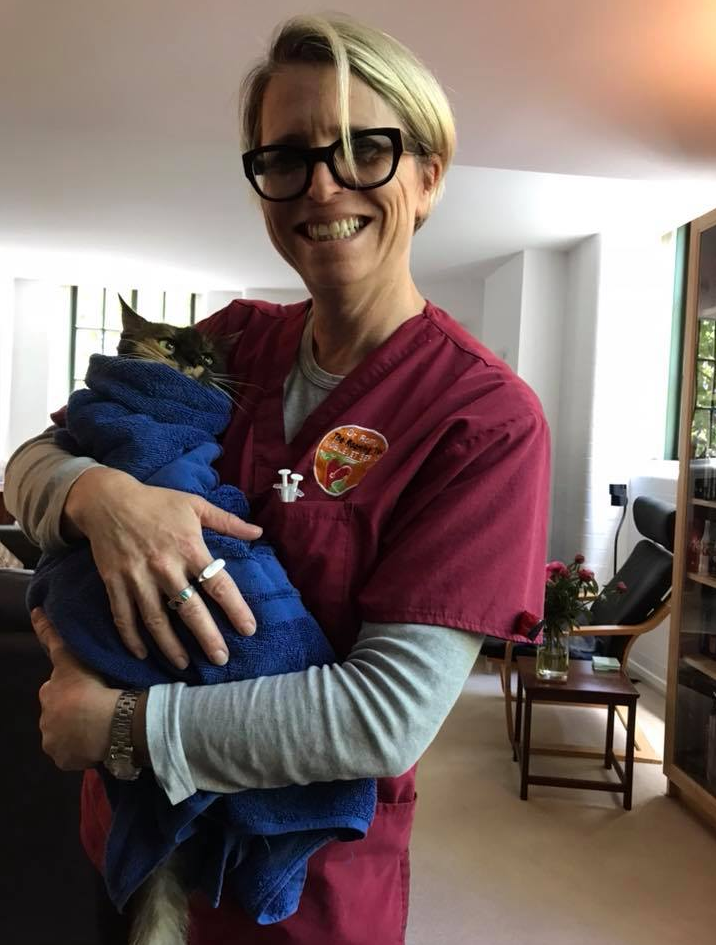How your pets may be suffering in Sydney's smoke haze
Thick smoke shrouding Sydney in a dense and toxic haze is not only threatening the airways of people, but also the breathing ability of their pets.
NSW has endured an extended period of heavy smog following hundreds of bushfires, prompting warnings from health authorities for people to stay indoors if they have compromised immune systems.
Speaking with Yahoo News Australia, Dr Romy Feldman, owner of mobile vet service The Roaming Vet, said it was imperative pet owners kept a close eye on the toll the smoke was having on their animals as well.

What animals are at risk?
In a similar way to humans, dogs and cats who already experience breathing difficulty are at greater risk of suffering health complications when there is pollution in the air.
“I’ve definitely had patients that have pre-existing respiratory conditions that have suffered more because of the increased pollutant in the area,” Dr Feldman said.
She said cats were particularly vulnerable because asthma and allergic airway disease was more common in felines than in dogs.
“It’s possible that a cat could have a mild case, and the smoke could make it more obvious,” Dr Feldman said.
Generally, all pets with pre-existing respiratory conditions should be monitored closely and owners should take them to the vet if they suspect their condition has worsened, according to Dr Feldman.
“I think that anyone who has an animal with a pre-existing condition should keep them indoors if they can and try to keep the air as clean as they can.
“Obviously if anyone has an animal who is starting to cough more, or showing signs of respiratory distress, they should see a vet.”
Are healthy dogs at risk?
Dogs with no underlying breathing issues generally should not suffer as a result of the poor air quality, and owners should feel safe leaving them outside and taking them out for walks, Dr Feldman said.
“It should be safe if dogs are healthy, but owners still need to be sensible. If they’re out and about and sense their dog is having some trouble, they should obviously stop the walk and take them inside.

“People will mainly know their animals really well, so most will know they shouldn’t expose them if they already have an issue.”
Can smoke cause respiratory issues?
While most animals had issues in smokey conditions due to pre-existing breathing problems, Dr Feldman said it was not completely impossible for the smoke to create problems in otherwise healthy dogs.
“You can never say never because some days the smoke in the air is really bad,” she said.
Sydney 'prankster' accused of 'trying to profit from NSW bushfires'
'Unprecedented': Sydney and Melbourne could be set for 50C days
'Seek shelter': Fire in NSW doubles in size as blaze closes in on tourist icon
How else can the air harm animals?
The combination of hot weather and strong wind can blow small pieces of ash through the air, which can cause a host of issues on its own.
“We’ve had ash in Sydney which can affect dogs’ eyes as well. With all the wind and heat, it can blow ash into their face and cause eye problems.
“It’s not a super dangerous situation, but I’d urge people to just have common sense.”
Large sections across the Greater Sydney area have continued to record “hazardous” air quality readings, according to the NSW Air Quality Index.
Southwest areas of Sydney including Camden and Liverpool had the worst air quality on Wednesday, with parts of the inner east including Rozelle and Randwick following closely behind.
Rouse Hill, Richmond and other areas of the city’s northwest were less severe, but still had a “poor” air quality reading.

Are some breeds more at risk?
Brachycephalic dogs, those with shorter noses and flat faces, typically are born more at risk of having respiratory problems, so are more likely to suffer in poor air quality, Dr Feldman said.
“Because they tend to suffer from respiratory disease, when the air quality is poor, this tends to make it worse for them.
“It’s not a life threatening situation, but owners should make sure they’re being vigilant about tending to their needs.”
Do you have a story tip? Email: newsroomau@yahoonews.com.
You can also follow us on Facebook, Instagram and Twitter and download the Yahoo News app from the App Store or Google Play.



